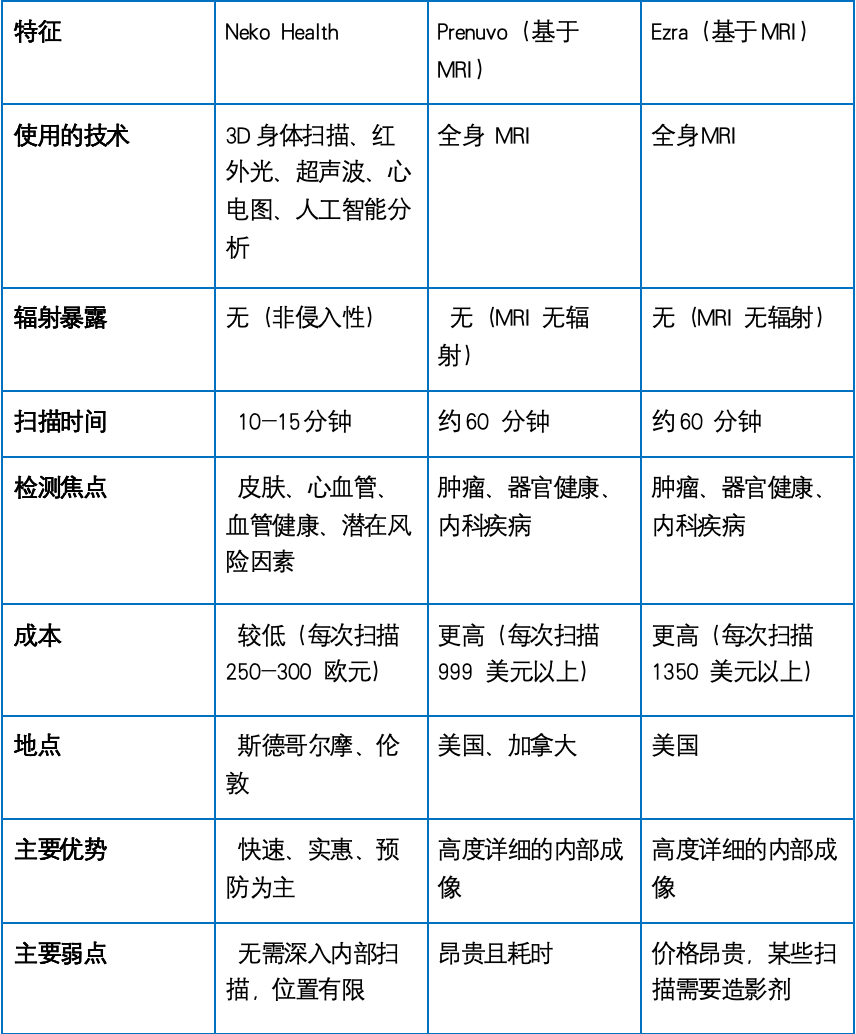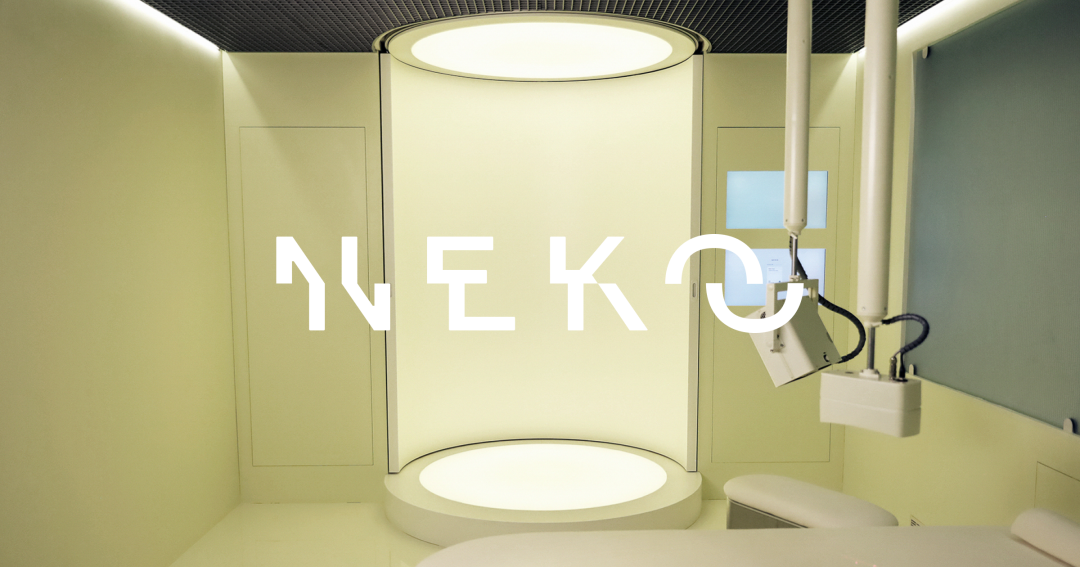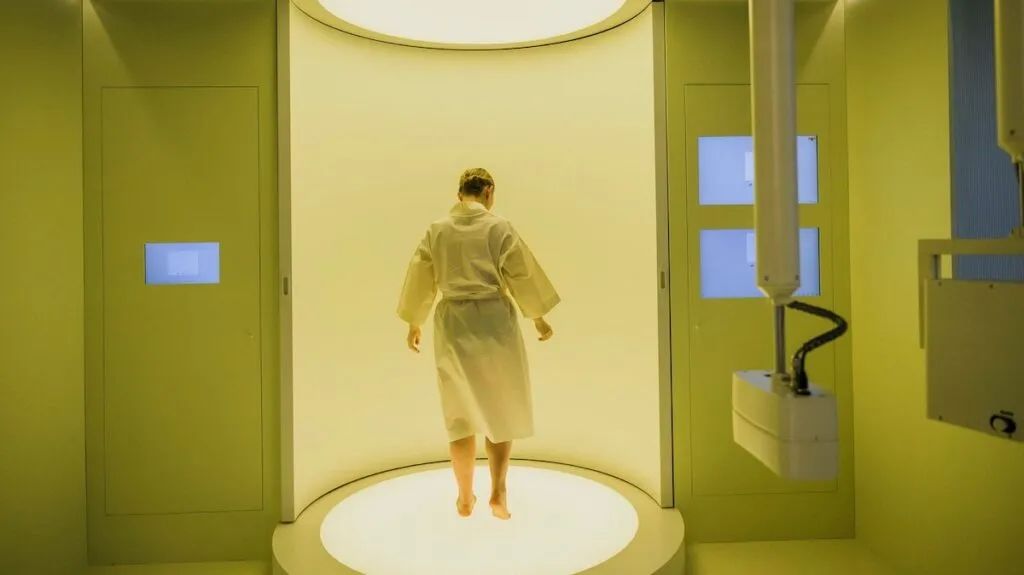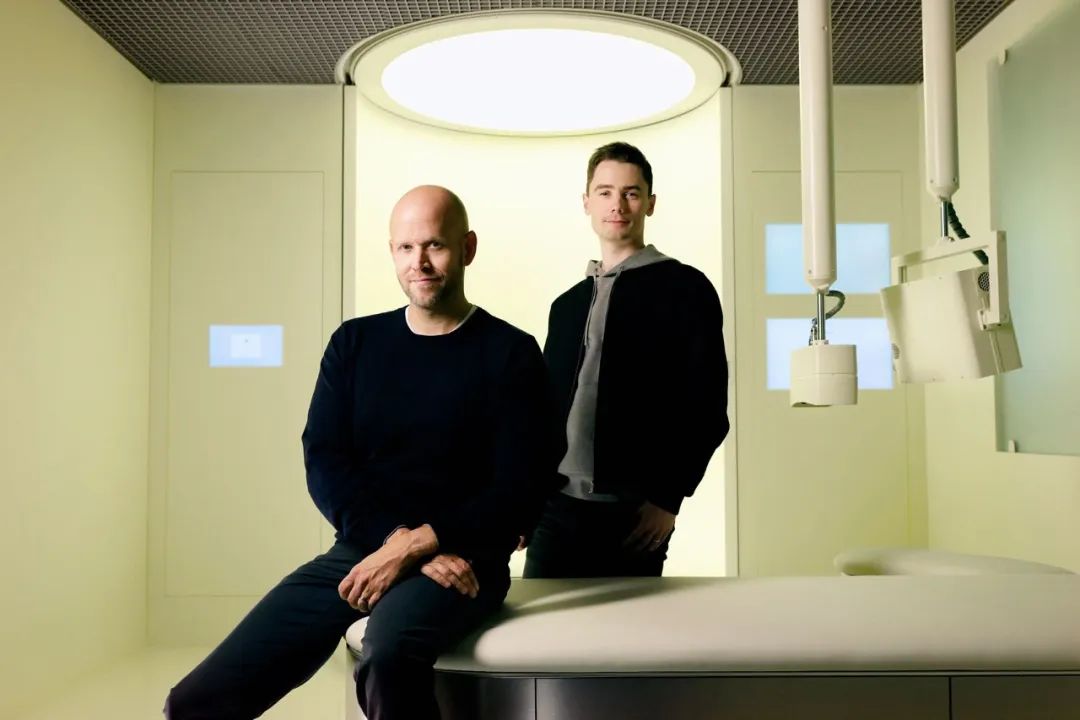Valued at $1 Billion in Two Years: A $3,000 Medical Check-Up Becomes the Key to Longevity for Silicon Valley Elites
![]() 03/25 2025
03/25 2025
![]() 623
623
Author | Wang Wang, Yifan, Editor | Yifan
How does a $3,000 medical check-up become the key to longevity for Silicon Valley elites?
Would you spend £299 (approximately ¥2,800) on a full-body scan?
In just a few months after launching its product, this company has completed over 10,000 scans. Even in Stockholm and London, over 100,000 people are eagerly waiting to experience this special medical check-up. This enthusiasm has propelled Neko Health, the startup behind this service, to a valuation of $1.7 billion, with 80% of its members rebooking and paying in advance.
Cases of discovering and preventing diseases early through scanning are now more common. The "full-body scan" market is still nascent and relatively small, dominated by companies offering CT, MRI, or other non-radiative imaging scans. However, the high price deters many ordinary people. Prenuvo in the US offers an MRI scan service worth $2,500, capturing thousands of body images within an hour using magnetic resonance imaging. Kim Kardashian and Gwyneth Paltrow are both avid fans. Another healthcare company, Ezra, which also provides MRI scans, charges over $1,500 for its services.
Obviously, compared to the prices of Prenuvo and Ezra, Neko Health's price is significantly more affordable. This is one of the crucial reasons it has been able to attract so many users in such a short time without any marketing. Earlier this year, Neko Health announced the completion of a new round of financing, valued at $1.7 billion post-funding. The deal was led by Lightspeed Venture Partners, which is backed by investors in Elon Musk's xAI, Stripe, and Epic Games.
One of the company's founders is Spotify's founder, Daniel Ek. In 2023, Daniel Ek and Swedish entrepreneur and tech startup founder Hjalmar Nilsonne co-founded Neko Health.
Daniel Ek once told the media that the companies they aspire to be like are Apple or Tesla, but they hope to focus their efforts in a "very different" field—healthcare. Furthermore, Ek stated that the product created by Neko Health will be the first iPod of the healthcare industry.
Looking back at Neko Health's growth story, the company is so low-key in terms of marketing and even physical presence that it's easy to overlook. Who is Neko Health? How could this European company, established for less than two years, become a unicorn with a valuation of over $1 billion without excessive marketing? Why did it achieve unicorn status with only two offline stores?

£299: A Full-Body Scan with an Immersive Sci-Fi Experience
The concept of a full-body scan is not new. It's known as an MRI in public hospitals and a "life-saving machine" in Kim Kardashian's Instagram posts.

However, unlike companies like Prenuvo and Ezra that provide MRI and CT scans, Neko does not use MRI-based scans but instead focuses on non-invasive scanning technologies, including:
• 3D body scan - Captures skin conditions and abnormalities.
• Infrared and sensors - Measure skin and vascular health.
• AI analysis - Detects early signs of potential health risks.
• Full-body ultrasound and electrocardiogram (depending on the package) - Monitors cardiovascular health.
At Neko Health's wellness center, it's a high-end health experience that transports you to the future.
What does this £299 service include?

Walking into Neko Health's offline wellness center, you feel like you're in a scene from the American TV series Severance. Low-saturation walls, subtle floodlighting, minimalist rounded metal furniture, a serene corridor leading nowhere, and, of course, mysterious high-tech equipment.
Your experience here is unlike any previous medical check-up.
First, an assistant will record some basic information about you and then guide you to a room to change into underwear, a bathrobe, and slippers. Another assistant will measure your height and weight and lead you to a cylindrical chamber. Neko Health's core service is advanced full-body scanning—you stand in a transparent cylindrical chamber where lights flash around you. Here, 70 sensors are at work, capturing 2,000 high-definition images of you in minutes, collecting composite images of millions or even 50 million data points covering body measurements, vascular status, heart rate, and more. Then you move to another examination room for blood pressure, intraocular pressure measurements, grip strength tests, and blood sample collection (the only invasive test). The entire medical examination process takes less than an hour. Afterward, you change back into your clothes and are taken to a separate consulting room where a doctor will interpret the data in detail and provide personalized health assessments and recommendations. Neko Health recommends that you undergo a scan annually to update your health records, track health changes, compare benchmarks with peers, and monitor improvements in your health indicators.
Based on thorough body scans and massive data analysis, Neko Health aims to help customers detect common chronic diseases such as cardiovascular disease, metabolic syndrome, diabetes, and certain types of cancer at an early stage.
After completing a new round of financing, Neko announced that it would use the funds to enter the US market—as the US has the largest number of people on their waiting list after Europe.

Is Neko Really Worth This Much Money?
Some question whether this full-body scanning company with only two offline clinics is truly worth this much money.
After all, MRI startup Ezra, which operates 18 clinics in the US, is valued at only one-tenth of Neko. Swedish digital health company Kry, which also has physical clinics, had a valuation of $2 billion in 2022 with revenue of €188 million in 2023, giving it a valuation 10.6 times its revenue.
When Neko first opened, the scanning fee was €150. According to Neko's official website, 2,707 people underwent scans from February 2 to December 31, 2023.
According to venture capital media Sifted, Neko's net income in 2023 was 5.5 million Swedish kronor (€500,000), while operating costs were 106 million Swedish kronor (€9.7 million), of which 56 million Swedish kronor (€5 million) were for employee salaries. By the end of 2023, Neko had 44 employees.

At the end of 2023, Neko increased its scanning prices to €250 in Sweden and €356 (£299) in London. The company announced in January this year that it had completed 10,000 scans in Stockholm and London, with the London clinic opening in the last quarter of 2024. Neko also plans to increase the number of clinics in the UK this year and expand into the US.
If we base our calculations on Neko's report that its net income in 2023 was €500,000, even if its income in 2024 quadruples, according to Kry's valuation method, Neko's valuation would still be difficult to reach $1.7 billion. (According to Sifted's calculations, with Neko's scanning price at €250 in Sweden and €356 (£299) in London, assuming it completed 7,000 scans last year with an average fee of €300, its 2024 income would be approximately €2.1 million. If it completed 10,000 scans, it would be €3 million. If we use Ezra's calculation method, where its valuation is 10.6 times its revenue, Neko's valuation would be approximately $34.42 million.)
Moreover, as Neko expands, its operating costs will continue to rise. Firstly, its offline clinic in London has an average annual rent of £180,000 for a commercial lease in the area. Additionally, Neko has expanded its workforce, doubling its employee count since 2023. Furthermore, Neko's CEO and co-founder Hjalmar Nilsonne told TechCrunch that Neko quietly acquired a startup developing sensors to enhance its data capture capabilities.
It is inaccurate to place Neko and full-body scanning clinics like Kry under the same valuation system. In the eyes of investors, Neko is more of an AI medical data company. Neko is currently vertically integrating data and technology into one product. This is what sets Neko apart.

"The Daniel Ek Effect" - An Outsider Disrupting the Existing Healthcare System
Another significant reason for Neko's valuation and capital favor is its founders, especially Daniel Ek.
Neither of Neko Health's founders has a medical background—Daniel Ek is renowned for founding the music streaming platform Spotify over the past two decades, and Hjalmar Nilsonne is a Swedish tech entrepreneur who recently sold an environmental technology company before Neko Health.
Years ago, when Ek was busy fighting the streaming war with YouTube and Apple at Spotify, the immense pressure took a toll on his health. He always monitored his body data with a sports watch and occasionally flipped through medical journals in his free time. Ek has always believed that the current healthcare system is bloated and inefficient and needs to be disrupted, but at that time, he had no specific ideas or energy to solve this huge problem. It was not until 2018, when Spotify went public, that he finally had the money and leisure to turn to his next venture.
Ek and Nilsonne believe that most healthcare services today focus on treating diseases rather than preventing them. With the aging population, the number of diseases needing treatment is rapidly increasing, putting unsustainable pressure on the existing system.
Data shows that 75% of medical expenses go towards the treatment of chronic diseases. Neko Health believes that prevention and early detection of diseases can solve many problems because most chronic diseases are completely preventable or can be delayed for decades if intervened early. However, the existing healthcare system does not cover this part of the demand. The UK's National Health Service (NHS) only offers health checks every five years to people aged 44 to 74, with a narrow test scope and no interpretation guidance from doctors.

Left: Daniel Ek, Right: Hjalmar Nilsonne
With the determination to disrupt the existing healthcare system, Ek and Nilsonne opened Neko Health's first offline wellness center in Stockholm, Sweden. Ek is a programmer, and Nilsonne is an engineer. They took on the software and hardware work and planned to create the most advanced full-body scanning equipment.
In 2023, the Stockholm store opened. They found that consumers were extremely enthusiastic about this type of full-body scan and gave positive feedback. In the first year of operation in Stockholm, Neko Health scanned 2,707 people, of whom 78.5% had no health issues discovered, 14.1% had issues requiring further treatment, and 1% were diagnosed with "serious" cardiovascular, metabolic, or cancer diseases, of which they were previously unaware. In mid-2024, Neko Health's London store officially opened.
In a media interview in 2022, PJ Pärson, a partner at Northzone Venture Capital, an early supporter of Spotify, said that Ek is one of the few CEOs who has proven capable of leading a company from a small startup to a listed tech giant.
Not long ago, Silicon Rabbit reported on Ek's company Spotify finally turning a profit and seeing its share price soar after 18 years of losses (insert article link). Among Neko's investors, we can also see the presence of early Spotify investors, such as Lakestar, whose partner is Klaus Hommels, an early angel investor in Klarna, Spotify, and Skype.
In 2023, Neko Health raised $65 million in Series A funding from investors including LightSpeed Ventures. In January 2025, it completed a Series B funding round of $260 million.
Recently, Tech in Asia reported on Ek's company Spotify, which finally turned a profit and saw its share price soar after 18 years of losses. Among Neko's investors, we can also see the presence of early investors in Spotify, such as Lakestar, whose partner is Klaus Hommels, an early angel investor in Klarna, Spotify, and Skype.
Nilsonne said that in the future, Neko will continue to focus on the research and development of medical hardware and software. "We adopt a vertically integrated model, meaning we manufacture these devices, we develop the software, and we have clinics." Neko's goal for the future is to update annually, introduce more measurement parameters, and potentially offer different services at different price points for different levels of people.

Anti-Aging and Longevity: Silicon Valley's Eternal Utopia
Currently, Neko Health has completed 10,000 scans, with 80% of consumers booking a repeat scan for the following year.
Ek predicts that by the end of this year, the company will complete approximately 50,000 scans as planned, and the company is also considering opening new offline locations.
Investors' enthusiasm is closely tied to the recent wave of pursuing health, anti-aging, and longevity in Silicon Valley. From the Kardashian sisters' "IV drip parties" to Musk's promotion of semaglutide, to anti-aging enthusiast Bryan Johnson's blood transfusion therapy, and even "gene-edited humans"... These enthusiasts relentlessly experiment on their own bodies, giving birth to a number of health management and biotech companies. Neko Health is even one of the more reliable and less intimidating options. According to TechCrunch, an early supporter of Neko said that some of the most persistent people on the waiting list are investors who want to personally inspect the company for the health of their bodies and finances.
Nevertheless, Neko Health inevitably faces questions from all sides.
One aspect involves regulatory pressure. Government scrutiny has intensified significantly, with Nilsonne once remarking to the media that hundreds, if not thousands, of documents need to be submitted.
The other aspect pertains to public trust. Since the scandal of Theranos, the blood testing company dubbed "the biggest scam in Silicon Valley history," any company claiming to "usher in a new era of preventive medicine" inevitably raises questions among consumers. Some medical professionals also cast doubt on the effectiveness of whole-body scans. The American College of Radiology asserts: "To date, there is no evidence to suggest that whole-body screening is cost-effective or extends life expectancy." Dr. Nils-Eric Sahlin, a professor of medical ethics at Lund University in Sweden, informed DealBook that such tests are prone to false positives (where the test result is positive despite the actual condition being negative), which may prompt patients to seek unnecessary secondary medical care, thereby burdening the healthcare system.
However, fueled by faith in technology, the quest for longevity, health anxiety, or the mindset of "what's the harm in trying," an increasing number of consumers are booking Neko Health, with over 100,000 users applying for scans.
Amidst pressure from various quarters, Ek remarked, "If this endeavor ultimately doesn't generate profit, I'll be more than content, knowing that we're genuinely addressing real-world problems for real people."
References:
1. Neko Health’s Advanced Body Scanning Technology: A Breakthrough in Preventive Healthcare (forumNordic)
2. Is Daniel Ek’s Neko Health worth $1.7bn? (Sifted)
3. Neko, the body-scanning startup co-founded by Spotify’s Daniel Ek, raises $260M at a $1.8B valuation (TechCrunch)








